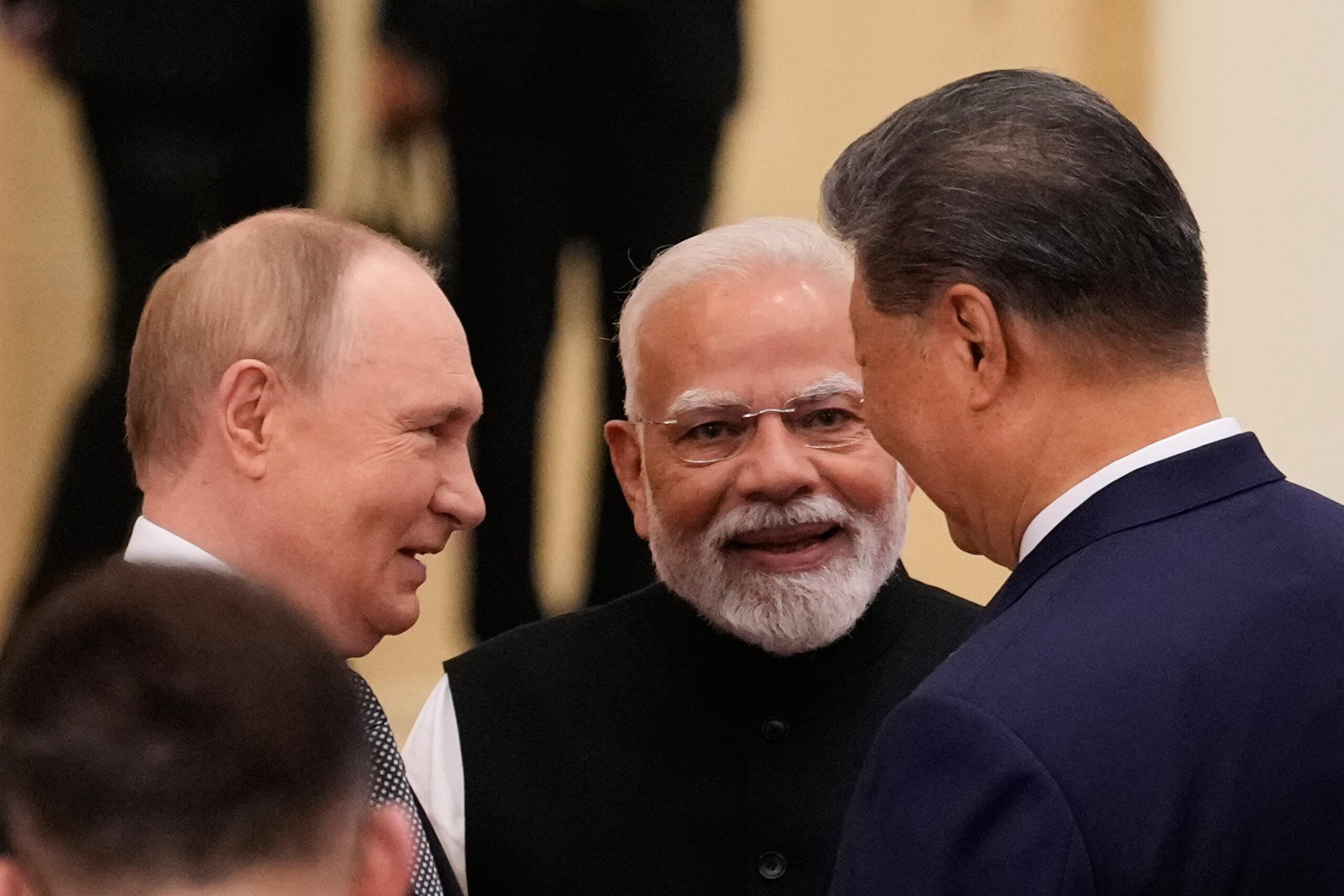Politics
Biden’s Foreign Policy Sparks Tensions Among Global Powers

President Joseph R. Biden’s recent foreign policy decisions have led to unexpected alignments among global powers, particularly China, India, and Russia. In response to the ongoing conflict in Ukraine, these nations are finding common ground, raising concerns about potential shifts in global stability. The West’s strategy to isolate Russia has not yielded the desired results, with significant implications for international relations.
The backdrop of this realignment stems from the West’s efforts to impose sanctions and cut financial ties with Russia due to its military actions in Ukraine. Vladimir Putin, the President of Russia, appears to have learned a vital lesson from these sanctions: severing financial ties with democratic nations can lead to unexpected partnerships. This has prompted a reevaluation of alliances, as countries seek to bolster their own economic and security interests amid shifting geopolitical landscapes.
Impact on Global Alliances
The intertwining of interests among China, India, and Russia highlights a growing challenge for Western nations. While these countries may not be natural allies, the current geopolitical climate has prompted them to collaborate more closely. This partnership could alter the balance of power and create new economic opportunities, which may not align with Western objectives.
India, for example, has been navigating a delicate balance between its relationships with the West and its historical ties to Russia. The country has been a significant purchaser of Russian military equipment and energy resources, making its position in this evolving landscape particularly critical. As tensions rise, India’s stance could influence its economic future and security strategies.
Long-term Consequences
The implications of this realignment extend beyond immediate political outcomes. The West’s failure to effectively isolate Russia could result in a more cohesive bloc among these nations, potentially leading to increased economic cooperation and military collaboration. This shift may create challenges for democratic nations seeking to uphold international norms and standards.
Furthermore, global markets may feel the effects of these developments. As countries like India deepen their ties with Russia and China, shifts in trade patterns could impact economies worldwide. Investors and policymakers alike will need to monitor these changes closely, as they could redefine international trade and investment flows.
In summary, the strategic decisions made by the Biden administration have inadvertently fostered closer ties among China, India, and Russia. As the global landscape continues to evolve, the long-term consequences of these alliances will require careful consideration from Western leaders and stakeholders. The current situation serves as a reminder that foreign policy decisions can have far-reaching impacts, shaping the dynamics of power on the world stage.
-

 World5 months ago
World5 months agoSBI Announces QIP Floor Price at ₹811.05 Per Share
-

 Lifestyle5 months ago
Lifestyle5 months agoCept Unveils ₹3.1 Crore Urban Mobility Plan for Sustainable Growth
-

 Science4 months ago
Science4 months agoNew Blood Group Discovered in South Indian Woman at Rotary Centre
-

 World5 months ago
World5 months agoTorrential Rains Cause Flash Flooding in New York and New Jersey
-

 Top Stories5 months ago
Top Stories5 months agoKonkani Cultural Organisation to Host Pearl Jubilee in Abu Dhabi
-

 Sports4 months ago
Sports4 months agoBroad Advocates for Bowling Change Ahead of Final Test Against India
-

 Science5 months ago
Science5 months agoNothing Headphone 1 Review: A Bold Contender in Audio Design
-

 Top Stories5 months ago
Top Stories5 months agoAir India Crash Investigation Highlights Boeing Fuel Switch Concerns
-

 Business5 months ago
Business5 months agoIndian Stock Market Rebounds: Sensex and Nifty Rise After Four-Day Decline
-

 Sports4 months ago
Sports4 months agoCristian Totti Retires at 19: Pressure of Fame Takes Toll
-

 Politics5 months ago
Politics5 months agoAbandoned Doberman Finds New Home After Journey to Prague
-

 Top Stories5 months ago
Top Stories5 months agoPatna Bank Manager Abhishek Varun Found Dead in Well









